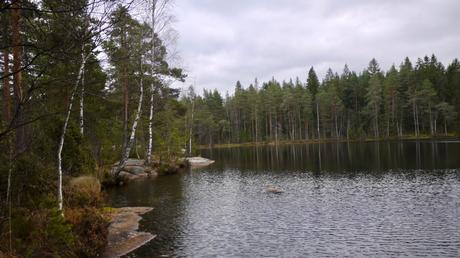 © CJA Bradshaw
© CJA BradshawBack in 2013, an interesting paper by a group of mainly Swedish ecologists (including one of my former collaborators, Professor Jon Moen of Umeå University) showed how increasing tree species diversity in boreal forests generally increased biomass production. While this is really not news to ecologists in general — for we now have an abundance of data showing that more species diversity leads to higher ecosystem productivity — it certainly didn’t please many foresters whose job it is generally to make trees grow faster so that companies can harvest more timber or pulp.
Well, Jon kindly just emailed me the group’s latest contribution to the puzzle, but this time they looked at several different ‘ecosystem services’ that (mainly boreal) forests provide — things like berry production, topsoil carbon storage, game (hunted mammals) production, the species richness of understory species, and the amount of dead wood — and found that not only does diversity matter, but also the relative abundance of each tree species in the forest mix.
What is fascinating here is that they used data covering an area of 400,000 km2 to show that different combinations of relative abundance of different tree species increased ecosystem services depending on how old the stand was, and in which biogeographical realm it was found. In essence, the authors came up with a bit of a recipe for how to promote the most ecosystem services with specific combinations of trees and their individual abundances.
The novelty here is that while the diversity-production relationship certainly had been well-established already, adding in all these other ‘services’ lends so much more weight to how forestry should be done, that now we can ideally select and promote certain forestry-production systems, and not others.
It’s really lovely to see a good, empirical example of analyses like this for a relatively simple system — it makes ecology not only even more fascinating, but imminently practical to society and economics as well.

